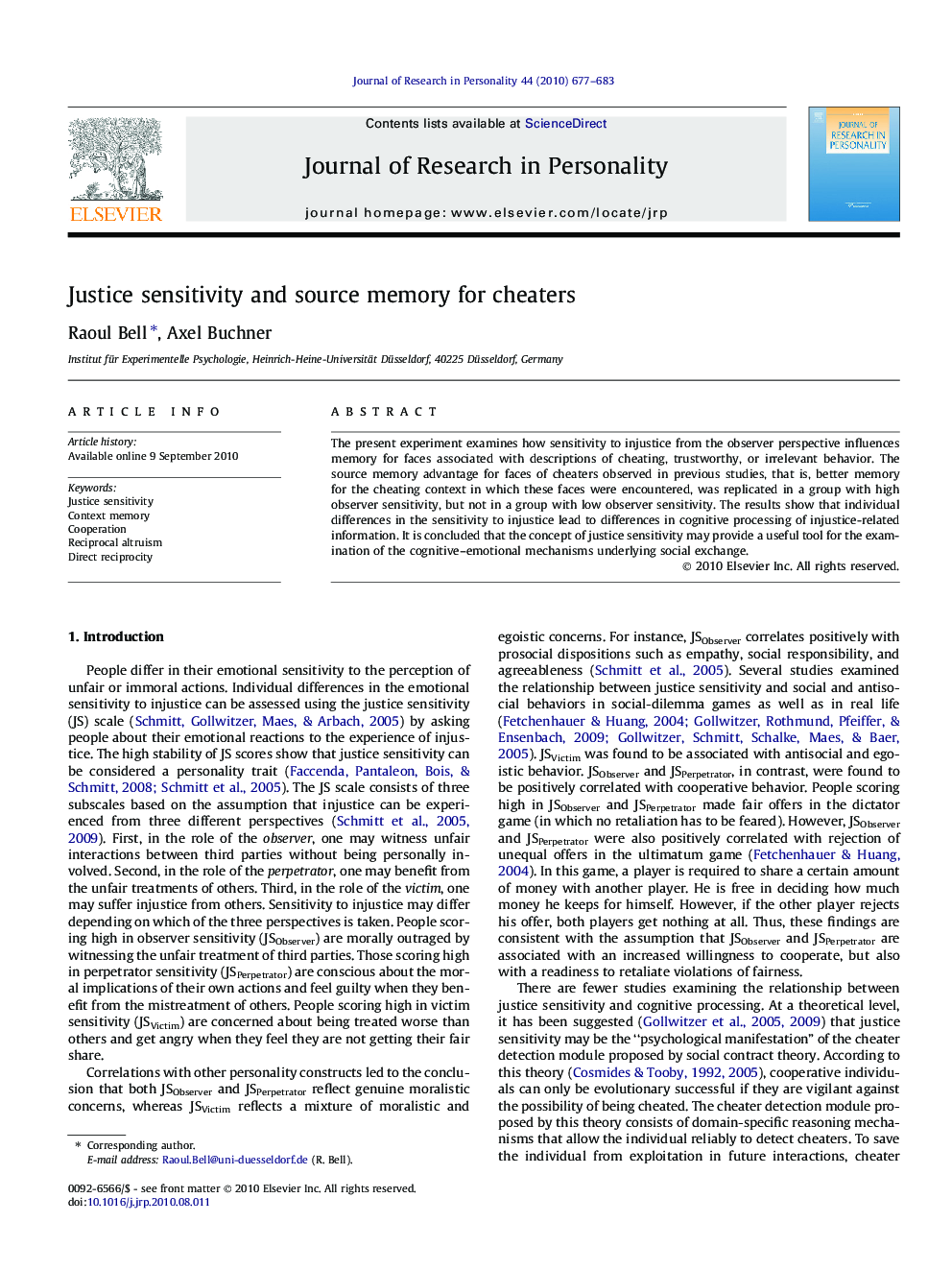| Article ID | Journal | Published Year | Pages | File Type |
|---|---|---|---|---|
| 951924 | Journal of Research in Personality | 2010 | 7 Pages |
The present experiment examines how sensitivity to injustice from the observer perspective influences memory for faces associated with descriptions of cheating, trustworthy, or irrelevant behavior. The source memory advantage for faces of cheaters observed in previous studies, that is, better memory for the cheating context in which these faces were encountered, was replicated in a group with high observer sensitivity, but not in a group with low observer sensitivity. The results show that individual differences in the sensitivity to injustice lead to differences in cognitive processing of injustice-related information. It is concluded that the concept of justice sensitivity may provide a useful tool for the examination of the cognitive–emotional mechanisms underlying social exchange.
